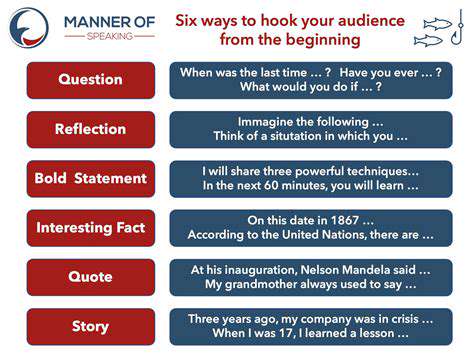How to Stay Motivated While Studying
Setting Realistic and Achievable Goals

Setting Realistic Goals
Establishing realistic and achievable goals is crucial for sustained motivation and success in any endeavor. Setting overly ambitious targets can lead to frustration and discouragement, ultimately hindering progress. It's essential to break down large, complex goals into smaller, more manageable steps. This approach allows for a clearer understanding of the required actions and provides a sense of accomplishment as each step is completed, fueling continued motivation. Realistic goals are also more likely to be attained, leading to a greater sense of fulfillment and self-efficacy.
Moreover, defining specific, measurable, achievable, relevant, and time-bound (SMART) goals is a powerful strategy. This framework ensures that your goals are not vague but rather well-defined and actionable. By setting clear parameters for success, you increase the likelihood of achieving your objectives. This structured approach is more effective than simply hoping for a positive outcome, providing a roadmap for navigating the path to your desired results.
Understanding Your Capabilities
Understanding your personal capabilities and limitations is fundamental to setting realistic goals. This involves honestly assessing your skills, resources, and available time. Overestimating your abilities can lead to unrealistic expectations and potentially damaging outcomes. Therefore, a crucial aspect of goal setting involves self-assessment. Recognizing your strengths and weaknesses allows you to create goals that are attainable within your current capacity.
Taking into account external factors, such as time constraints, financial limitations, or other responsibilities, is equally important. Acknowledging these external constraints can prevent feelings of overwhelm and help you adjust your goals accordingly. This proactive approach to goal setting ensures that your aspirations are congruent with your present circumstances, leading to a more sustainable and fulfilling journey.
Prioritizing and Time Management
Prioritizing tasks and effectively managing your time are essential for achieving your realistic goals. Identifying the most critical tasks and focusing on completing them first can significantly increase productivity and efficiency. This strategic approach allows you to allocate your time and energy to the tasks that matter most, leading to a sense of accomplishment and progress.
Developing a structured plan, whether through a to-do list, a calendar, or a project management tool, is also vital. This organization allows you to visualize your goals and the steps needed to achieve them. This visual representation can provide a sense of control and clarity, making the journey towards your goals feel less daunting and more manageable. Ultimately, effective time management and prioritization are key components of achieving success.

Rewarding Yourself and Maintaining a Healthy Lifestyle
Setting Realistic Goals
Establishing achievable goals is crucial for maintaining motivation in the long run. Instead of aiming for drastic overnight transformations, focus on smaller, incremental steps. For example, instead of vowing to exercise for an hour every day, aim for 15-20 minutes of activity most days of the week. This approach fosters a sense of accomplishment and builds momentum, making it easier to maintain the desired lifestyle changes over time.
Breaking down large goals into smaller, more manageable tasks allows you to track your progress and celebrate milestones along the way. Each accomplishment, no matter how small, reinforces positive behavior and keeps you motivated to continue your journey toward a healthier lifestyle.
Finding Activities You Enjoy
Choosing activities you genuinely enjoy is key to long-term adherence. If you dread hitting the gym or find running tedious, explore alternative options. Perhaps you'd enjoy dancing, swimming, hiking, or playing a sport with friends. Finding activities that spark joy will make sticking to your routine far more sustainable.
Discovering activities you truly enjoy transforms exercise from a chore into a rewarding experience. This positive association makes it easier to integrate healthy habits into your daily life and enhances your motivation to maintain them consistently.
Rewarding Yourself Effectively
Rewarding yourself after achieving a goal is a fantastic way to reinforce positive behavior. The reward doesn't need to be extravagant; a small treat, a relaxing activity, or a new piece of workout gear can be incredibly motivating. However, avoid using food as a primary reward, as this can hinder your progress towards a healthy lifestyle.
The key to effective rewards lies in their alignment with your overall goals. Choose rewards that reinforce healthy habits without derailing your progress. For example, a new workout outfit after hitting a fitness goal, or a relaxing evening after achieving a dietary milestone. This reinforces positive behavior without promoting unhealthy habits.
Prioritizing Mental Well-being
Your mental well-being plays a pivotal role in maintaining motivation and a healthy lifestyle. Stress and anxiety can significantly impact your ability to stay on track. Prioritizing activities that reduce stress, such as meditation, yoga, or spending time in nature, is essential. These activities not only promote mental well-being but also contribute to overall health.
Taking care of your mental health is as important as physical health. Techniques like mindfulness and stress-reduction strategies can help you stay focused on your goals and overcome challenges, leading to long-term success in maintaining a healthy lifestyle.
Building a Support System
Enlisting the support of friends, family, or a support group can significantly boost your motivation. Sharing your goals with others can provide encouragement and accountability. Having someone to celebrate milestones with and offer support during challenging times can make all the difference.
Connecting with like-minded individuals fosters a sense of community and shared purpose. This shared experience can provide valuable insights, motivation, and encouragement, making it easier to stay committed to your health goals and overcome obstacles along the way.

![Best Free Resources for Learning [Specific Subject, e.g., Calculus]](/static/images/31/2025-05/PracticeProblemsandSolutionSets.jpg)







![Guide to Learning Basic [Specific Language] Phrases](/static/images/31/2025-07/ShoppingandBargaining28ifapplicable29.jpg)

